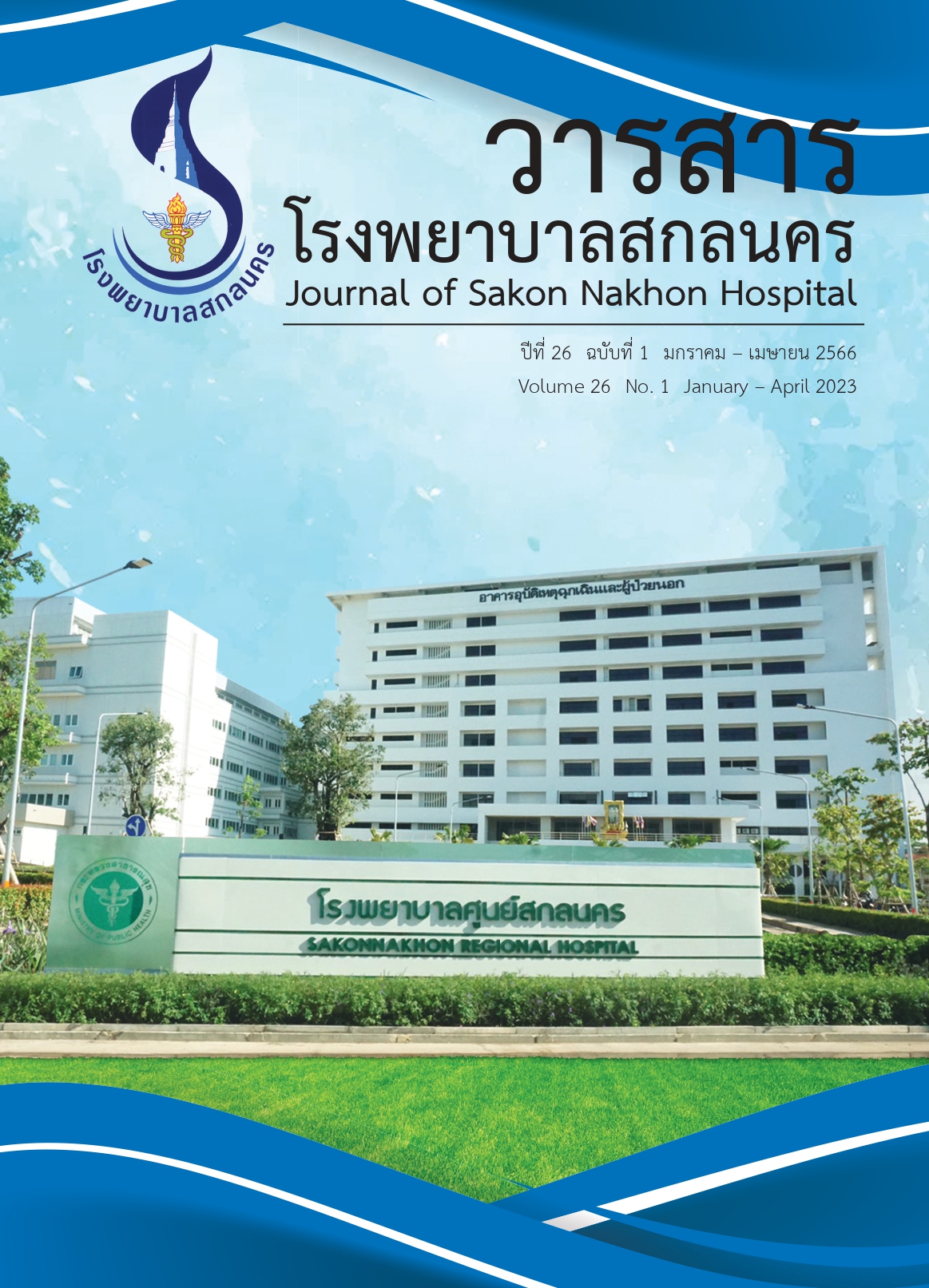Factors Affecting Neonatal Thyroid Hormone Deficiency in the Era of COVID–19 Pandemic, Akat Amnuai District, Sakon Nakhon Province
Abstract
In the era of COVID–19 pandemic, Iodine deficiency has an impact on the fetus and pregnant woman’s health, leading to miscarriages and premature births, newborns with underweight, anemic and hypothyroid. This research aimed to study the relationship between personal, social and environmental factors and Thyroid hormone deficiency in infant. The participant consisted of 134 postpartum women with their infant. The data were collected from June to July 2022. The research tool was the interviewing form developed by the researchers according to the health promotion theory for pregnant woman. Data were analyzed by using the frequency, percentage and multiple logistic regressions.
The results revealed that 67.7% of samples were pregnant aged 20–34 years, 50.7% took iodized salt before pregnancy, 67.2% consumed iodized salt during pregnancy, 45.5% received iodized salt during antenatal care, 30.6% took folate before pregnancy, 53.0% reached quality criteria of antenatal care and 57.5% took daily iodine supplement. Factors affected the Thyroid hormone deficiency in infant were didn’t eat iodized salt in household, didn’t take folate before pregnant, education level below secondary education and residing in the Sub–district Administrative Organization. The multiple logistic regressions analysis showed that Thyroid hormone deficiency in infants of pregnant women whose husbands drank alcohol and smoked were 0.26 and 0.43 times more than that of pregnant women whose husbands didn’t drink alcohol and didn’t smoke, respectively (ORadj = 0.26, 95%CI 0.10–0.66 and 0.43, 95% CI 0.20–0.94, respectively). Thyroid hormone deficiency in infants of pregnant women with pre–pregnancy malnutrition was 2.59 times more than that of pregnant women with adequate nutrition (ORadj = 2.59, 95%CI 1.17–5.74). Therefore, iodine consumption is important for pregnant woman. The more rigorous monitoring system should be designed to encourage pregnant women taking daily iodine supplement sufficiently.
Keywords: Infant, Pregnant woman, Thyroid hormone, Iodized salt, Iodine supplement, high Iodine dietary




